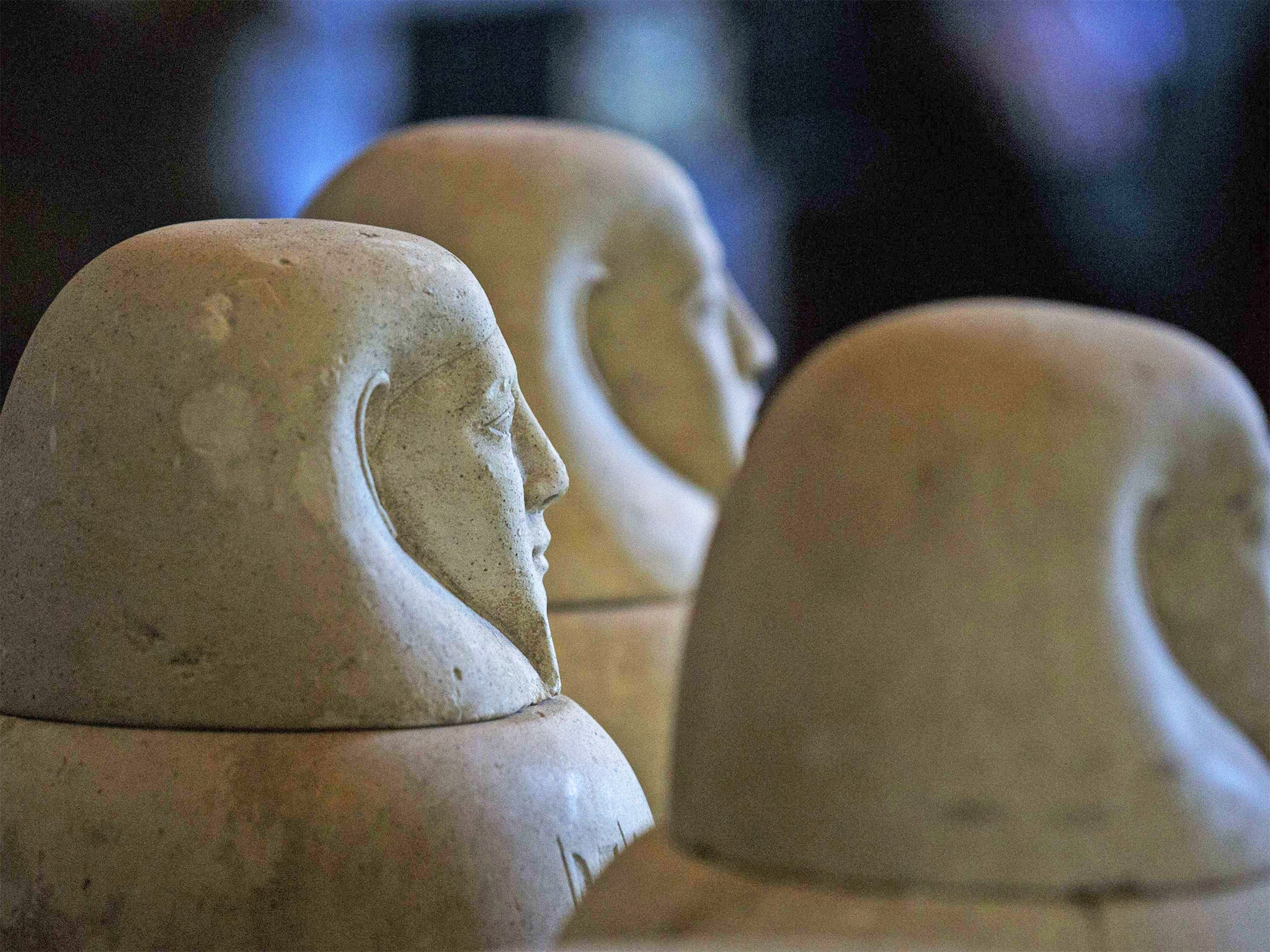Spanish police break up criminal gang smuggling €300,000 Egyptian antiquities that could have been used to fund jihadists
Isis and other militant groups have used artefact sales as an important source of revenue in recent years

Spanish police have announced the break-up of a criminal gang responsible for smuggling hundreds of thousands of euros’ worth of Egyptian antiquities to the West, claiming the arrests will also hinder the transfer of money to jihadists in the Middle East.
The Civil Guard in the coastal city of Valencia said that it had interrupted a smuggling ring, which had been transporting ancient artefacts from Alexandria to Europe to sell to wealthy private collectors on the black market. At the same time it seized a shipping container carrying more than 30 pieces, worth more than €300,000 (£227,000). As part of the operation, four Egyptians and a Spanish dealer of Egyptian artefacts have been arrested.
Police believe that the operation may have been in existence for a number of years, and said that the proceeds from sales of the artefacts could be being channelled through Egypt and on to other parts of the region, where it could fall into the hands of Islamist militants.
Isis and other groups have used antiquities sales as an important source of revenue in recent years. The practice is not as lucrative as oil sales or kidnapping, but there is believed to be a ready market of buyers, and smuggling items through porous borders is a relatively easy thing to do.
It is feared that much of the heritage of Syria’s largest city, Aleppo, may have been lost, due not only to the devastating fighting the city has witnessed, but also as a result of looters taking advantage of the turmoil to steal items for sale.
“This deserves congratulations, as we must raise awareness within the European Union about the need to stop the trafficking of these goods, not just because they can favour conflicts and terrorism, but because they are part of the culture of the country they were stolen from,” Arsenio Fernandez de Mesa, the director-general of the Civil Guard, told El Pais.
As well as stymying a channel of funds for jihadist groups, the discovery is also a triumph for those concerned that the recent upheaval in Egypt threatens its historic collections.
Following the fall of Hosni Mubarak in 2011, Egyptian archaeologists warned that the country had become a haven for looters and smugglers, and that many priceless pieces were being targeted by those acting for private collectors. During the riots and demonstrations in Tahrir Square, the nearby Egyptian Museum was itself was raided and at least two people were arrested carrying out the heads of mummies they had stolen.
The museum houses one of the most impressive collections of antiquities from ancient Egypt, including the discoveries made at the tomb of Tutankhamun. The number of unlicensed archaeological digs is also said to have soared in the immediate aftermath of the toppling of Mubarak.
The artefacts seized in Valencia include a bust of the lioness-headed goddess of war, Sekhmet, which antiquities dealers suggest could be worth as much as €100,000. It is believed that the piece is originally from a tomb in the Valley of the Kings, near Luxor. An initial plan to display the items in Spain has been abandoned; after being catalogued, they will be returned to Egypt.
Subscribe to Independent Premium to bookmark this article
Want to bookmark your favourite articles and stories to read or reference later? Start your Independent Premium subscription today.

Join our commenting forum
Join thought-provoking conversations, follow other Independent readers and see their replies